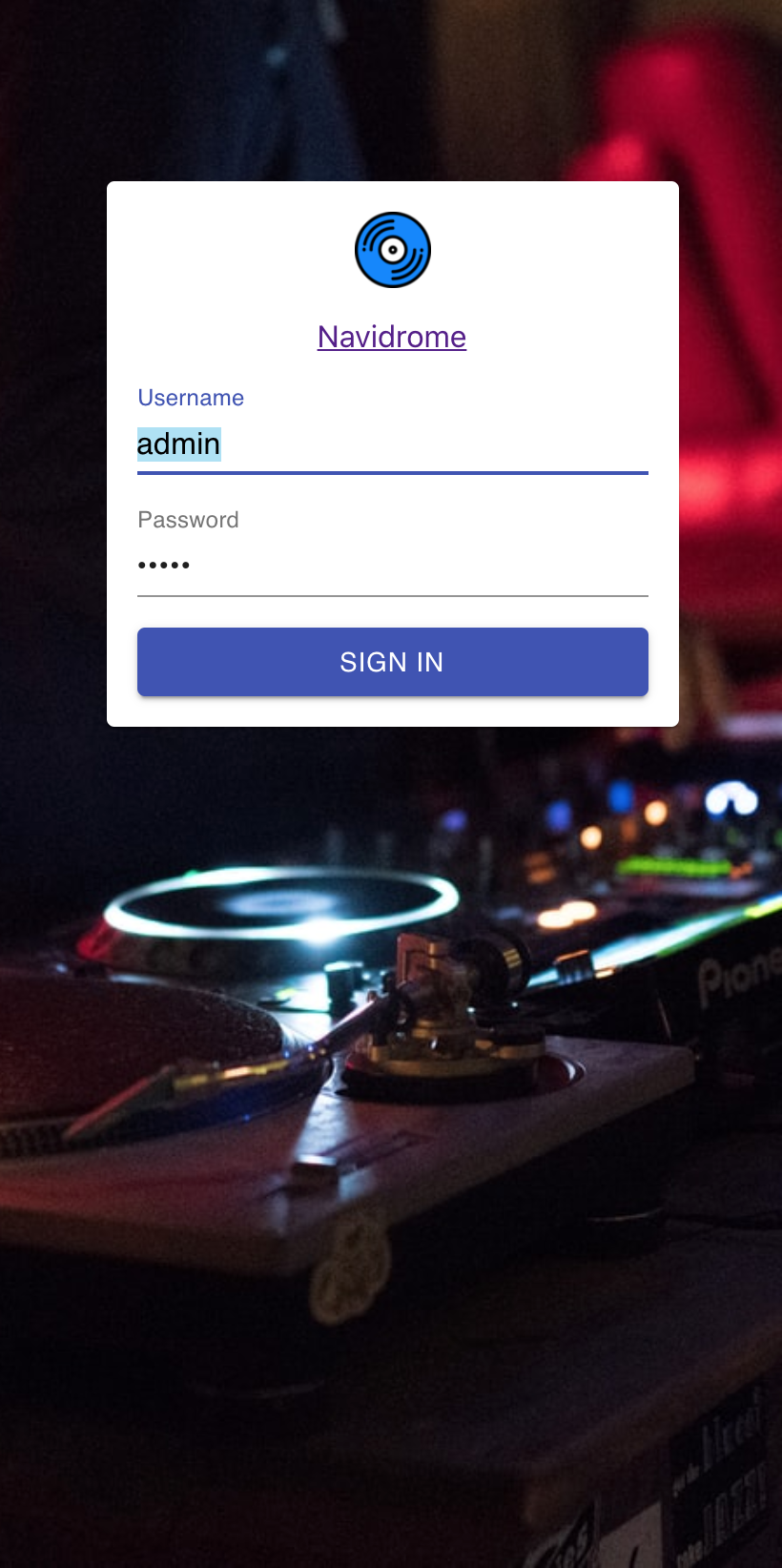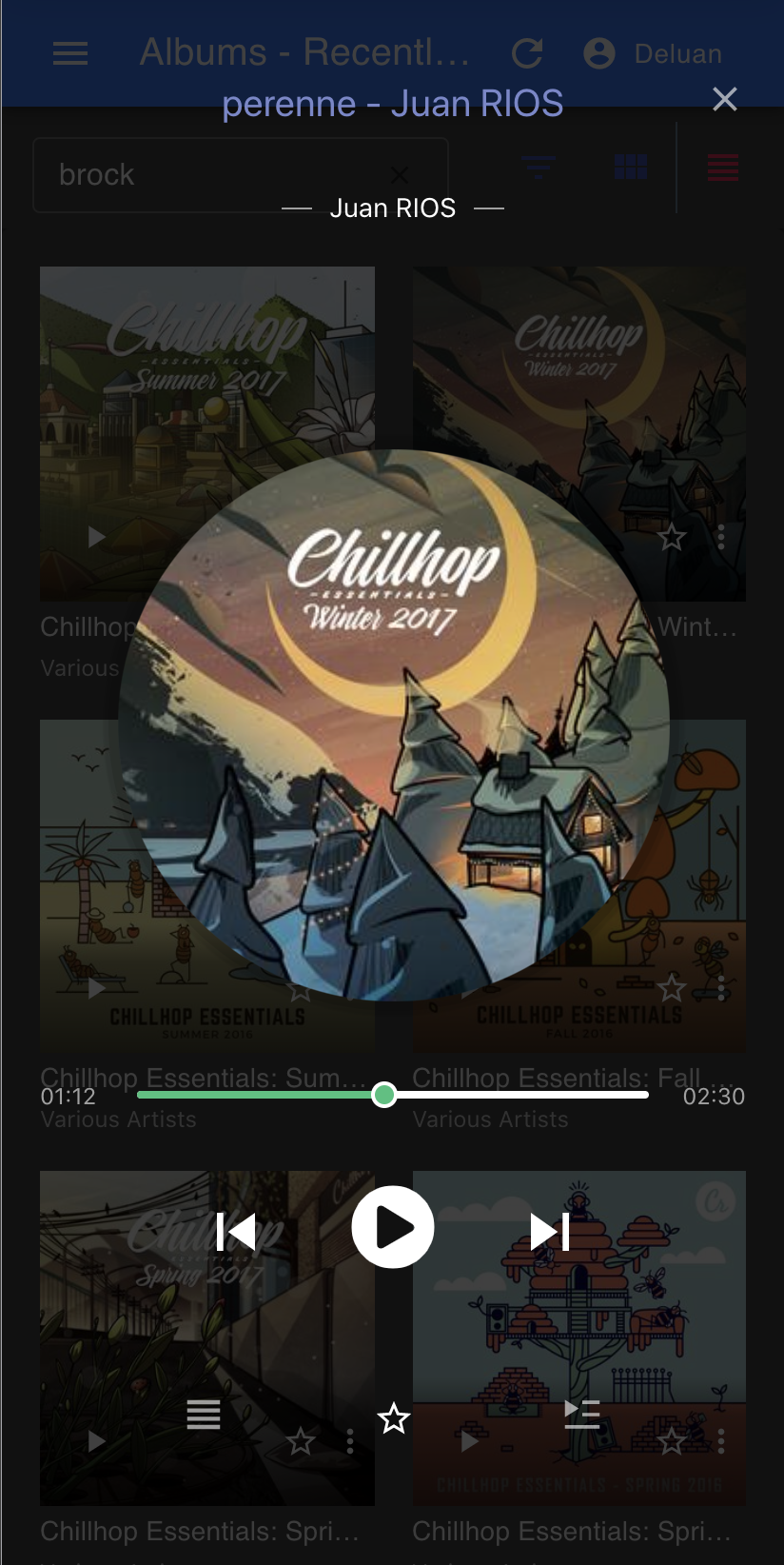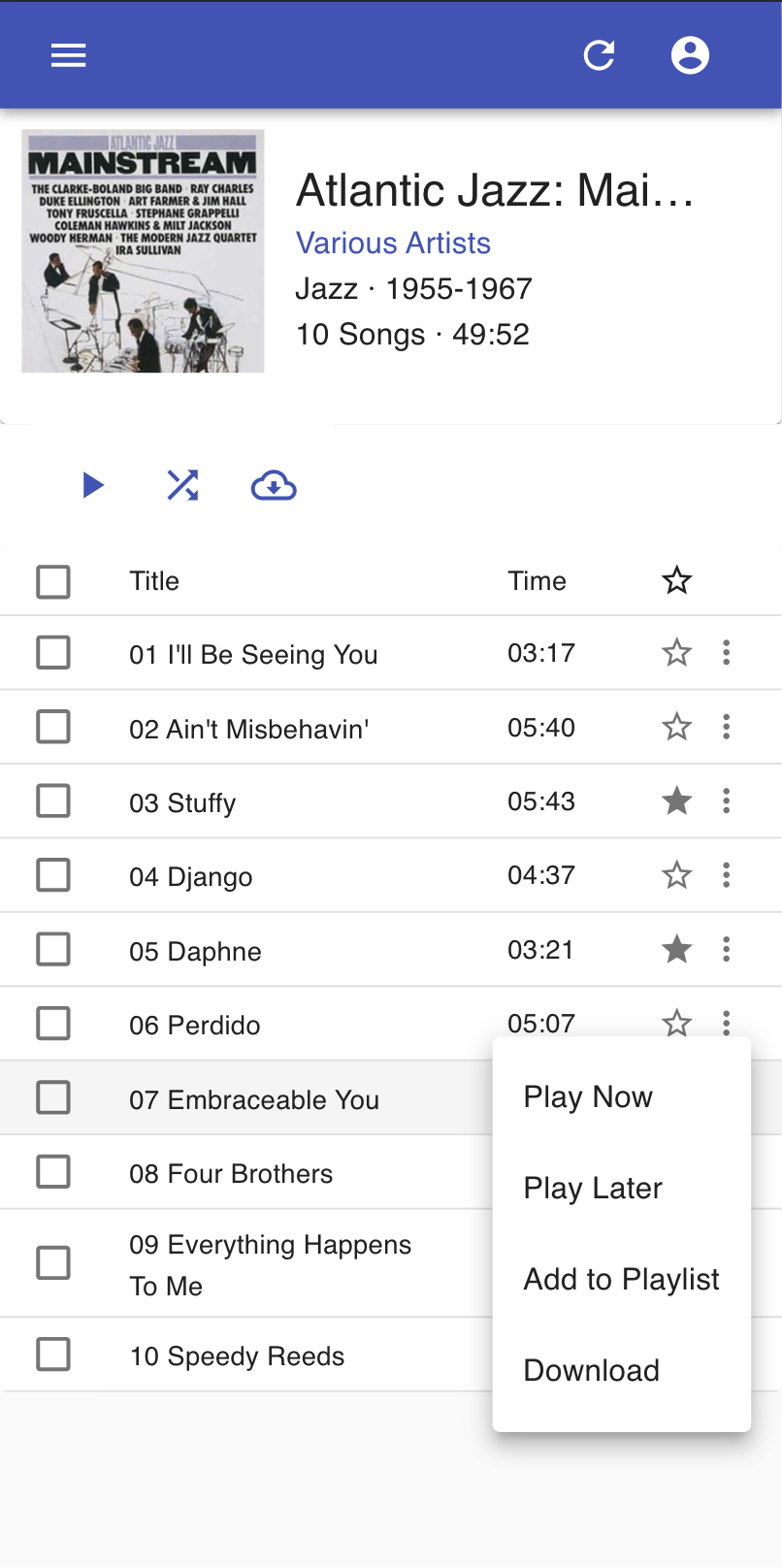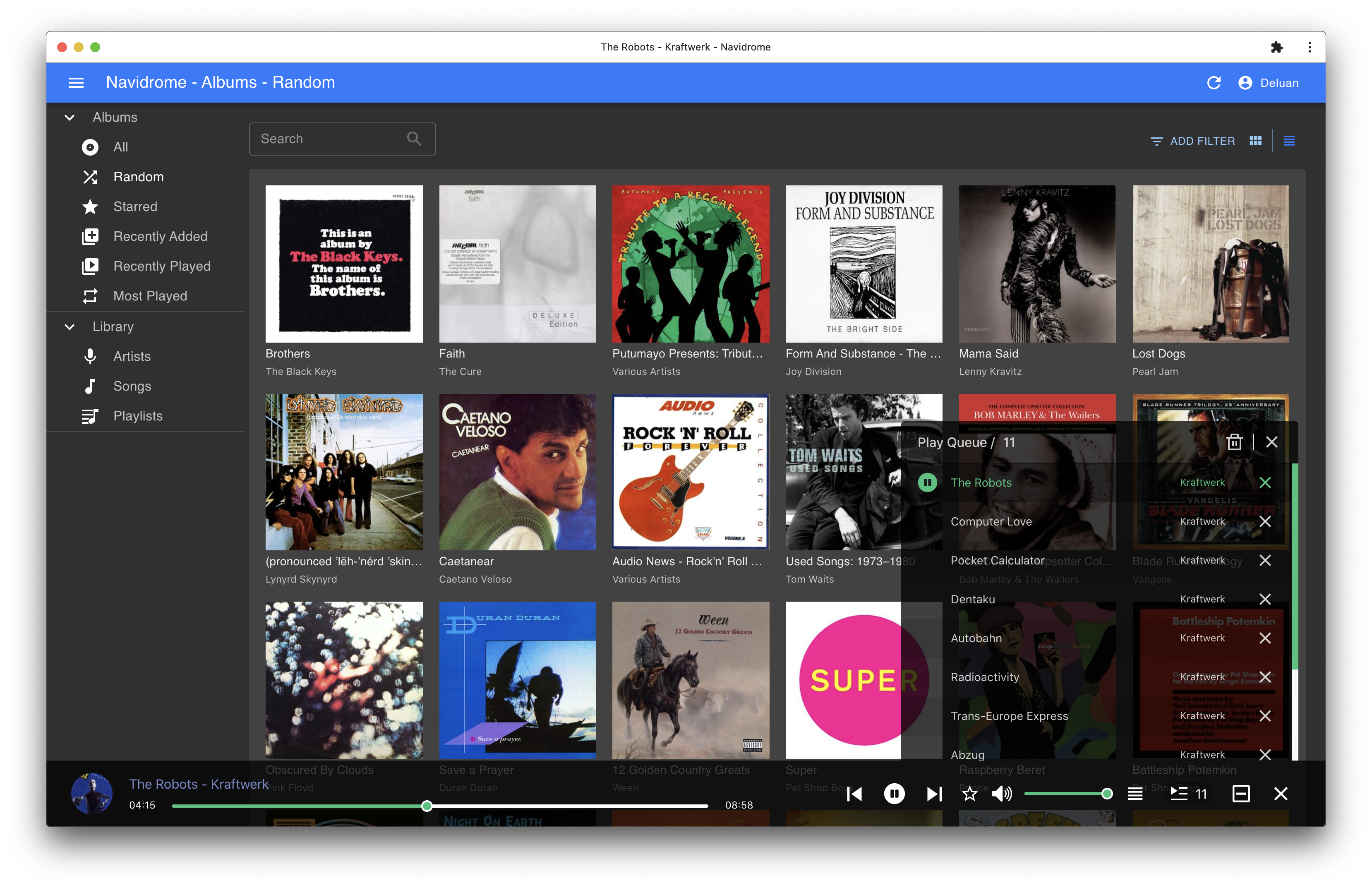* Adding cache directory to ignore-list * Adding jukebox-related config options * Adding DevEnableJukebox config option pls. dummy server * Adding types and routers * Now without panic * First draft on parsing the action * Some cleanups * Adding playback server * Verify audio device configuration * Adding debug-build target to have full symbol support * Adding beep sound library pls some example code. Not working yet * Play a fixed mp3 on any interface access for testing purposes * Put action code into separate file, adding stringer, more debug output, prepare structs, validation * Put action parameter parser code where it belongs * Have a single Action transporting all information * User fmt.Errorf for error-generation * Adding wide playback interface * Use action map for parsing, stringer instead switch stmt. * Use but only one switch case and direct dispatch, refactoring * Add error handling and pushing to client * send decent errormessage, no internal server error * Adding playback devices slice and load it from config * Combine config-verification and structure init * Return user-specific device * Separate playback server from device * Use dataStore to retrieve mediafile by id * WIP: Playlist and start/stop handling. Doing start/stop the hard way as of now * WIP: set, start and stop work on one single song. More to come * Dont need to wait for the end * Merge jukebox_action.go into jukebox.go * Remove getParameterAsInt64(). Use existing requiredParamInt() instead * Dont need to call newFailure() explicitly * Remove int64, use int instead. * Add and set action now accept multiple ids * Kickout copy of childFromMediaFile(). It is not needed here. * Refactoring devices and playbackServer * Turn (internal) playback.DeviceStatus into subsonic JukeboxStatus when rendering output. Indexes int64 -> int * Now we have a position and playing status * Switching gain to float32, xs:float is defined as 32 bit. Fixing nasty copy/pointer bug * Now with volume control * Start working the queue * Remove user from device interface * Rename function GetDevice -> GetDeviceForUser to make intention clearer * Have a nice stringer for the queue * User Prepared boolean for now to allow pause/unpause * Skipping works, but without offsets * Make ChildFromMediaFile public to be used in jukebox get() implementation * Return position in seconds and implement offset-skip in seconds * Default offset to 0 * Adding a simple setGain implementation * Prepare for transcoding AAC * WIP: transcode to WAV to use beeps wav decoder. Not done yet. * WIP: out of sheer desparation: convert to MP3 (which works) rather than WAV to troubleshoot issue. * Use FLAC as intermediate format to play Apple AAC * A bit of cleanup * Catching the end-of-stream event for further reactions * Have a trackSwitching goroutine waiting on channel when track ends * Move decoder code into own file. Restructure code a bit * Now with going on to play the next song in the playlist * Adding shuffle feature * Implementing remove action * Cleanup code * Remove templates for ffmpeg mp3 generation. Not needed anymore. * Adding some documentation * Check whether offset into track is in range. Fixing potential remove track bug. Documentation * Make golangci-lint happy: handling return values * Adding test suite and example dummy for playback package * Adding some basic queue tests * Only use Jukebox.Enabled config option * Adding stream closing handling * Pass context.Context to all PlaybackDevice methods * Remove unneeded function * Correct spelling * Reduce visibility of ChildFromMediaFile * Decomplicate action-parsing * Adding simple tempfile-based AAC->FLAC transcoding. No parallel reading and writing yet. * Try to optimize pipe-writing, tempfile-handling and reading. Not done yet. * Do a synchronous copy of the tempfile. Racecondition detected * More debugging statements and fixing the play/pause bug. More work needed * Start the trackSwitcher() with each device once. Return JSON position even if its 0. More debug-output * Moving all track-handling code into own module * Fix typo. Do not pass ctx around when not applicable * WIP: More refactoring, debugging output * Fix nil pointer * Repairing MP3 playback by pinning indirect dependencies: hajimehoshi/go-mp3 and hajimehoshi/oto * Do not forget to cleanup after a skip action * Make resync with master easy * Adding missing mocks * Adding missing error-handling found by linter * Updating github.com/hajimehoshi/oto * Removing duplicate function * Move BEEP-related code into own package * Juggle beep-related code around as preparation for interface access * More refactoring for interface separation * Gather CloseDevice() behind Track interface. * Adding skeleton, draft audio-interface using mpv.io * Adding majority of interface commands using messages to mpv socket. * Adding end-of-stream handling * MPV: start/stop are working * postition is given in float in mpv * Unify Close() and CloseDevice(). Using temp filename for controlling socket * Wait until control-socket shows up. Cleanup socket in Close() * Use canceable command. Rename to Executor * Skipping tracks works now * Now with actually setting the position * Fix regain * Add missing error-handling found by linter * Adding retry mode on time-pos property getter * Remove unneeded code on queue * Putting build-tag beep onto beep files * Remove deprecated call to rand.Seed() "As of Go 1.20 there is no reason to call Seed with a random value. Programs that call Seed with a known value to get a specific sequence of results should use New(NewSource(seed)) to obtain a local random generator." * Using int32 to conform to Subsonic API spec * Fix merge error * Minor style changes * Get username from context --------- Co-authored-by: Deluan <deluan@navidrome.org> |
||
|---|---|---|
| .devcontainer | ||
| .github | ||
| cmd | ||
| conf | ||
| consts | ||
| contrib | ||
| core | ||
| db | ||
| git | ||
| log | ||
| model | ||
| persistence | ||
| resources | ||
| scanner | ||
| scheduler | ||
| server | ||
| tests | ||
| ui | ||
| utils | ||
| .dockerignore | ||
| .git-blame-ignore-revs | ||
| .gitignore | ||
| .golangci.yml | ||
| .goreleaser.yml | ||
| .nvmrc | ||
| CODE_OF_CONDUCT.md | ||
| CONTRIBUTING.md | ||
| go.mod | ||
| go.sum | ||
| LICENSE | ||
| main.go | ||
| Makefile | ||
| Procfile.dev | ||
| README.md | ||
| reflex.conf | ||
| tools.go | ||
| update-translations.sh | ||
Navidrome Music Server 
Navidrome is an open source web-based music collection server and streamer. It gives you freedom to listen to your music collection from any browser or mobile device. It's like your personal Spotify!
Note: The master branch may be in an unstable or even broken state during development.
Please use releases instead of
the master branch in order to get a stable set of binaries.
Check out our Live Demo!
Any feedback is welcome! If you need/want a new feature, find a bug or think of any way to improve Navidrome, please file a GitHub issue or join the discussion in our Subreddit. If you want to contribute to the project in any other way (ui/backend dev, translations, themes), please join the chat in our Discord server.
Installation
See instructions on the project's website
Cloud Hosting
PikaPods has partnered with us to offer you an officially supported, cloud-hosted solution. A share of the revenue helps fund the development of Navidrome at no additional cost for you.
Features
- Handles very large music collections
- Streams virtually any audio format available
- Reads and uses all your beautifully curated metadata
- Great support for compilations (Various Artists albums) and box sets (multi-disc albums)
- Multi-user, each user has their own play counts, playlists, favourites, etc...
- Very low resource usage
- Multi-platform, runs on macOS, Linux and Windows. Docker images are also provided
- Ready to use binaries for all major platforms, including Raspberry Pi
- Automatically monitors your library for changes, importing new files and reloading new metadata
- Themeable, modern and responsive Web interface based on Material UI
- Compatible with all Subsonic/Madsonic/Airsonic clients
- Transcoding on the fly. Can be set per user/player. Opus encoding is supported
- Translated to various languages
Documentation
All documentation can be found in the project's website: https://www.navidrome.org/docs. Here are some useful direct links:
Screenshots











